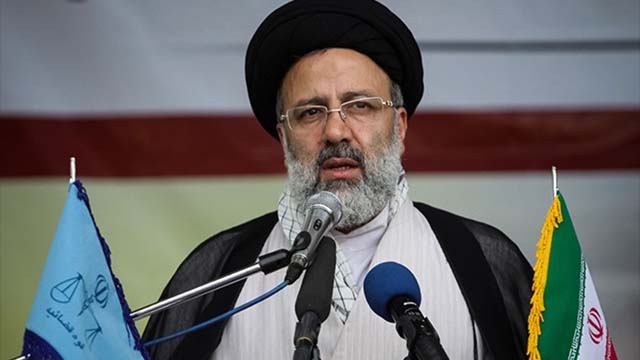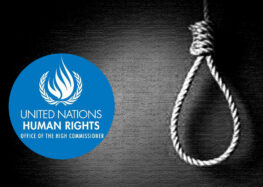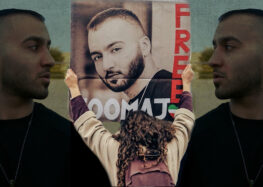Hardliners Float Name of Major Human Rights Violator for Iran’s Next Supreme Leader

For the time being, a powerful hardline cleric implicated in major human rights violations, Ebrahim Raisi, has ruled out his candidacy in Iran’s May 2016 presidential election. He remains, however, as a favorite among conservatives for becoming the country’s next supreme leader.
The announcement that Raisi will not run against current centrist President Hassan Rouhani on May 19 came the day after a conservative political coalition nominated him as their preferred presidential candidate.
The Entekhab newspaper reported on February 23, 2017 that: “Hossein Kanani Moghaddam, a member of the Followers (of the Imam) Front and the Resistance Party, told our reporter: ‘Based on the vote count, Hojatoleslam Ebrahim Raisi has received the majority of the ballots in the voting among the coalition of popular Islamic revolutionary forces.’”
The next day, the Tasnim News Agency, which maintains close relations with the hardline Revolutionary Guards, published a statement by Raisi’s office saying that he considered it an honor to remain in the city of Mashhad as the head of Astan Quds Razavi, one of the largest Shiite shrine-based religious institutions in Iran.
“Ayatollah Raisi believes that his presence in Astan Quds Razavi is more important than any other duty and is a valuable opportunity to serve those who adore these sacred grounds,” said the February 24 statement.
Raisi was granted the position in March 2016 by Supreme Leader Ali Khamenei, whom Raisi may replace after Khamenei’s death.
“Death Committee” Member
Raisi, 56, has spent most of his career in the judiciary. As a judge in the 1980s, he was known for issuing harsh sentences for cases involving oppositionists and dissidents.
He was also a member of the infamous “Death Committee,” a four-man special judicial panel that ordered the executions of thousands of political prisoners in the summer of 1988.
Running in Iran’s presidential election would expose Raisi to embarrassing questions about his role in the massacre, described by a now deceased ayatollah and former successor to the founder of the 1979 revolution, Ruhollah Khomeini, as the “greatest crime committed in the Islamic Republic since the revolution.”
Raisi was deputy judiciary chief for a decade from 2004 to 2014, when he took over as prosecutor general in August of that year.
In March 2016, he was appointed as the new head of Astan Quds Razavi, after which chatter about him becoming Khamenei’s successor grew.
Rafsanjani’s Death and the Future Supreme Leader
The sudden death in January 2017 of Akbar Hashemi Rafsanjani—a former president and influential, pragmatic member of Iran’s political establishment—left a great void in the Assembly of Experts, a clerical body that will choose the country’s next supreme leader.
Formerly a close ally of Khamenei, as president (1989-1997) Rafsanjani oversaw one of the harshest crackdowns on dissidents and the press in the Islamic Republic’s history. However, in 2009 he earned a new reputation for strongly criticizing the government’s violent crackdown on peaceful protestors during that year’s disputed presidential election.
Without the voice of Rafsanjani, an experienced coalition-builder whose support was crucial for Rouhani’s election in 2013, reformists—often blocked by hardliners from entering politics—can no longer rely on a like-minded cleric to counteract pro-Khamenei forces in the Assembly of Experts.
In the February 2016 election for the assembly, Rafsanjani received the highest number of votes from Tehran, but lost the chairmanship to Ali Jannati, an ultra-conservative and close ally of Khamenei.
In an interview with the reformist Shargh newspaper in March 2015, Rafsanjani hinted that he didn’t have to be the chairman of the assembly, a position he held from 2007 to 2011, to influence the assembly’s vote for the next supreme leader.
“At the critical moment (of deciding on Khamenei’s successor), I don’t have to be the chairman (of the Assembly of Experts),” he said. “It would suffice for me to be a member of the assembly and like anyone, I could speak and give opinions and, if I wish, I could make an impact.”
With Rafsanjani now out of the picture, Khamenei’s wish for a hardliner like himself—who shares his anti-modern, anti-Western vision for Iran— to become the next supreme leader has become a more likely possibility.
“When the time comes to choose a leader, you should set aside your personal considerations and keep God in mind… If I have to say it in one word, that word is ‘revolutionary’—the Assembly of Experts should think and act in a revolutionary manner,” said Khamenei in a speech on March 10, 2016 to the newly elected members of the assembly.
Iran’s 77-year-old supreme leader’s health is declining. In 2014, Khamenei underwent prostrate surgery, fueling debate over his successor.
According to political analyst Reza Alijani, conservatives may choose a successor to Khamenei before his death to ensure a smooth transition that will preserve their interests.
The death of Rafsanjani, one of the most important pillars of Iran’s ruling religious-political establishment, has opened the door for the ultra-conservative Raisi to lead the running for the next supreme leader.
Other names have also been floated, including Khamenei’s son Mojtaba Khamenei, former Judiciary Chief Mahmoud Hashemi Shahroudi, current Judiciary Chief Sadegh Larijani, senior theologian Abdollah Javadi Amoli, senior theologian Nasser Makarem Shirazi, senior theologian Mesbah Yazdi and even President Hassan Rouhani.
Raisi stands out, however, as the strongest candidate because he has gained Khamenei’s trust and built a close relationship with the Revolutionary Guards.






